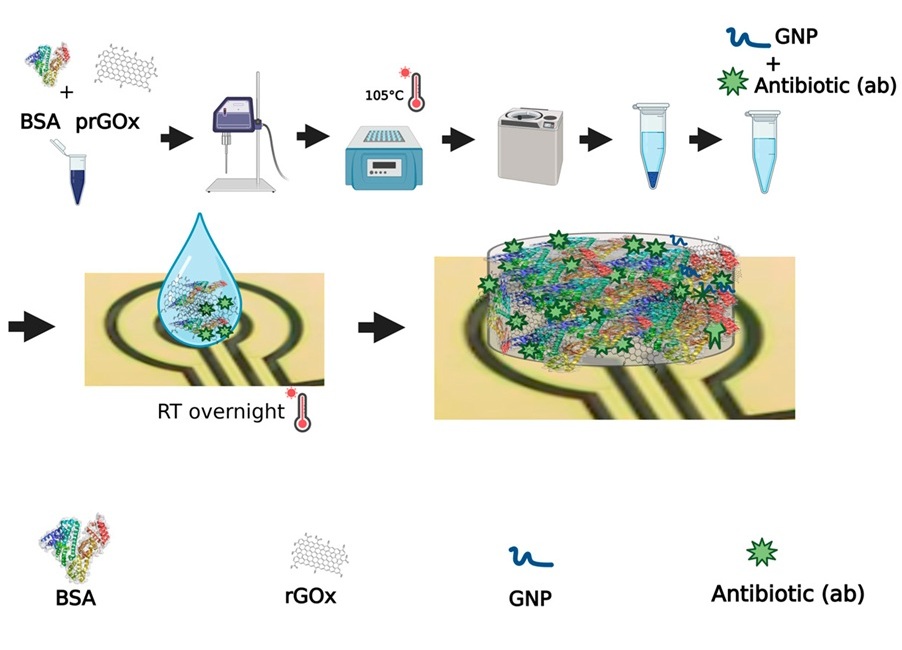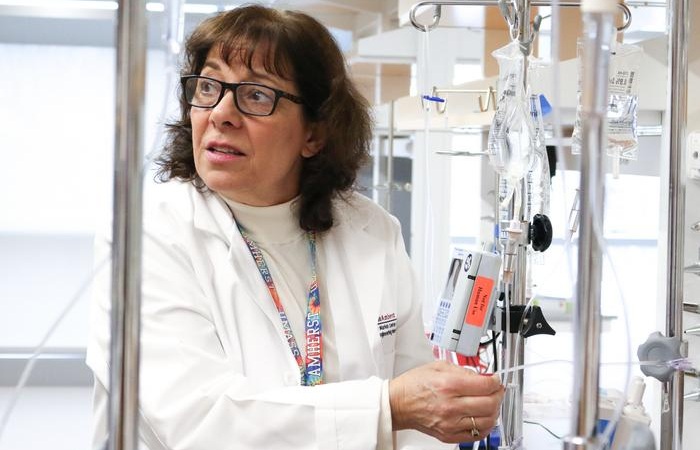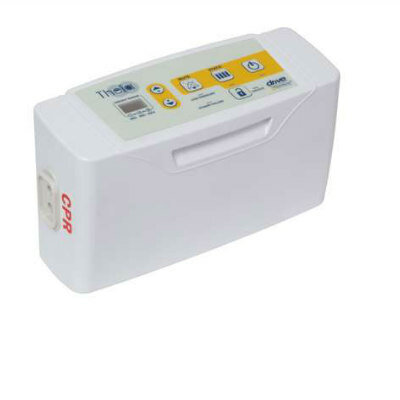Novel Concept of Immunologic Resilience Can Accurately Predict Which COVID-19 Patients Will Advance to Severe Disease
|
By HospiMedica International staff writers Posted on 09 Sep 2021 |

Illustration
A novel concept called “immunologic resilience” can accurately predict which COVID-19 patients will advance to severe disease and which will not.
Researchers from UT Health San Antonio (San Antonio, TX, USA) and the South Texas Veterans Health Care System (San Antonio, TX, USA) who developed the concept define immunologic resilience as the capacity to preserve or restore immune competence and control inflammation in the face of infection or other antigenic challenges. This capacity does not depend solely on age, according to the researchers. In fact, the level of immunologic resilience that precedes COVID-19 and develops during the viral disease is a strong predictor of COVID-19 outcomes regardless of age.
An 18-year-old could have inferior immunologic resilience, resulting in a high risk of severe COVID-19, whereas an 80-year-old with robust resilience could manifest less severe COVID-19. However, with age, the proportion of individuals with capacity to preserve immunologic resilience declines, contributing to the greater burden of COVID-19 in older persons. Conceivably, durability of vaccines may wane in persons with inferior immunologic resilience, say the researchers.
The scientists developed novel metrics to monitor immunologic resilience and evaluated them in 522 COVID-19 patients. Each patient’s level of immunological resilience was assessed on the day of admission and then daily for varying durations. Patients whose infections did not require hospital admission were visited at home for assessments. For comparative purposes, the researchers evaluated metrics of immunologic resilience in 13,461 individuals without COVID-19.
The researchers quantified immunologic resilience through “immune health grades,” which are based on measures of infection-fighting T cells, and blood cell gene expression signatures. An immune health grade of I signifies the best immunity and a grade of IV the worst. The group also analyzed grades from large control groups of otherwise healthy adults. The immune health grades and overall concept of immunologic resilience accurately predicted most patient outcomes, which in addition to mortality included hospitalization, need for advanced respiratory support, and levels of SARS-CoV-2 in the nasopharynx. Those who entered the hospital with the best immune health grades had shorter stays and non-progressive COVID-19, findings showed.
“We applied these immune metrics to every COVID-19 patient who came into the VA hospital. These metrics are highly prognostic. Metrics tracking inferior immunologic resilience predicted up to 19-times higher risk of dying within 30 days, which was the primary outcome of the study,” said the first author of the study, Grace C. Lee, PharmD, PhD, assistant professor, UT Health Science Center San Antonio and The University of Texas at Austin College of Pharmacy, and senior translational research scientist with the Foundation for Advancing Veterans’ Health Research. “Remarkably, irrespective of their COVID-19 status, men have inferior immunologic resilience, which may explain why they are predisposed to worse COVID-19 outcomes.”
“The concept is a useful way to assess the severity levels of patients and understand their potential rate of progression and need for advanced therapies and longer hospitalizations,” said co-author Sandra Sanchez-Reilly, MD, professor of medicine at the health science center and associate chief of service for geriatrics and extended care in the South Texas Veterans Health Care System.
Related Links:
UT Health San Antonio
South Texas Veterans Health Care System
Researchers from UT Health San Antonio (San Antonio, TX, USA) and the South Texas Veterans Health Care System (San Antonio, TX, USA) who developed the concept define immunologic resilience as the capacity to preserve or restore immune competence and control inflammation in the face of infection or other antigenic challenges. This capacity does not depend solely on age, according to the researchers. In fact, the level of immunologic resilience that precedes COVID-19 and develops during the viral disease is a strong predictor of COVID-19 outcomes regardless of age.
An 18-year-old could have inferior immunologic resilience, resulting in a high risk of severe COVID-19, whereas an 80-year-old with robust resilience could manifest less severe COVID-19. However, with age, the proportion of individuals with capacity to preserve immunologic resilience declines, contributing to the greater burden of COVID-19 in older persons. Conceivably, durability of vaccines may wane in persons with inferior immunologic resilience, say the researchers.
The scientists developed novel metrics to monitor immunologic resilience and evaluated them in 522 COVID-19 patients. Each patient’s level of immunological resilience was assessed on the day of admission and then daily for varying durations. Patients whose infections did not require hospital admission were visited at home for assessments. For comparative purposes, the researchers evaluated metrics of immunologic resilience in 13,461 individuals without COVID-19.
The researchers quantified immunologic resilience through “immune health grades,” which are based on measures of infection-fighting T cells, and blood cell gene expression signatures. An immune health grade of I signifies the best immunity and a grade of IV the worst. The group also analyzed grades from large control groups of otherwise healthy adults. The immune health grades and overall concept of immunologic resilience accurately predicted most patient outcomes, which in addition to mortality included hospitalization, need for advanced respiratory support, and levels of SARS-CoV-2 in the nasopharynx. Those who entered the hospital with the best immune health grades had shorter stays and non-progressive COVID-19, findings showed.
“We applied these immune metrics to every COVID-19 patient who came into the VA hospital. These metrics are highly prognostic. Metrics tracking inferior immunologic resilience predicted up to 19-times higher risk of dying within 30 days, which was the primary outcome of the study,” said the first author of the study, Grace C. Lee, PharmD, PhD, assistant professor, UT Health Science Center San Antonio and The University of Texas at Austin College of Pharmacy, and senior translational research scientist with the Foundation for Advancing Veterans’ Health Research. “Remarkably, irrespective of their COVID-19 status, men have inferior immunologic resilience, which may explain why they are predisposed to worse COVID-19 outcomes.”
“The concept is a useful way to assess the severity levels of patients and understand their potential rate of progression and need for advanced therapies and longer hospitalizations,” said co-author Sandra Sanchez-Reilly, MD, professor of medicine at the health science center and associate chief of service for geriatrics and extended care in the South Texas Veterans Health Care System.
Related Links:
UT Health San Antonio
South Texas Veterans Health Care System
Latest COVID-19 News
- Low-Cost System Detects SARS-CoV-2 Virus in Hospital Air Using High-Tech Bubbles
- World's First Inhalable COVID-19 Vaccine Approved in China
- COVID-19 Vaccine Patch Fights SARS-CoV-2 Variants Better than Needles
- Blood Viscosity Testing Can Predict Risk of Death in Hospitalized COVID-19 Patients
- ‘Covid Computer’ Uses AI to Detect COVID-19 from Chest CT Scans
- MRI Lung-Imaging Technique Shows Cause of Long-COVID Symptoms
- Chest CT Scans of COVID-19 Patients Could Help Distinguish Between SARS-CoV-2 Variants
- Specialized MRI Detects Lung Abnormalities in Non-Hospitalized Long COVID Patients
- AI Algorithm Identifies Hospitalized Patients at Highest Risk of Dying From COVID-19
- Sweat Sensor Detects Key Biomarkers That Provide Early Warning of COVID-19 and Flu
- Study Assesses Impact of COVID-19 on Ventilation/Perfusion Scintigraphy
- CT Imaging Study Finds Vaccination Reduces Risk of COVID-19 Associated Pulmonary Embolism
- Third Day in Hospital a ‘Tipping Point’ in Severity of COVID-19 Pneumonia
- Longer Interval Between COVID-19 Vaccines Generates Up to Nine Times as Many Antibodies
- AI Model for Monitoring COVID-19 Predicts Mortality Within First 30 Days of Admission
- AI Predicts COVID Prognosis at Near-Expert Level Based Off CT Scans
Channels
Artificial Intelligence
view channel
Innovative Risk Score Predicts Heart Attack or Stroke in Kidney Transplant Candidates
Heart researchers have utilized an innovative risk assessment score to accurately predict whether patients being evaluated for kidney transplants are at risk for future major cardiac events, such as a... Read more
AI Algorithm Detects Early-Stage Metabolic-Associated Steatotic Liver Disease Using EHRs
Liver disease, which is treatable when detected early, often goes unnoticed until it reaches advanced stages. Metabolic-associated steatotic liver disease (MASLD), the most prevalent form of liver disease,... Read moreCritical Care
view channel
Novel Coating Significantly Extends Longevity of Implantable Biosensors
Wearable and implantable biosensors capable of accurately detecting biological molecules in a non-invasive or minimally invasive way offer enormous potential for monitoring patients’ health and their responses... Read more
Nanogel-Based Drug Delivery Technology to Improve UTI Treatment
Urinary tract infections (UTIs) are not only widespread and costly but also highly debilitating, significantly impacting the quality of life for those affected. The antibiotics commonly used to treat UTIs... Read more
New IV Pole Improves Safety and Ease of Administering IV Medications at Hospital Bedside
Preventable medication errors affect around 500,000 hospitalized patients in the U.S. every year. A significant portion of these errors occur with intravenous (IV) smart pumps, which require a precise... Read moreSurgical Techniques
view channel
Easy-To-Apply Gel Could Prevent Formation of Post-Surgical Abdominal Adhesions
Surgical adhesions are a frequent and often life-threatening complication following open or laparoscopic abdominal surgery. These adhesions develop in the weeks following surgery as the body heals.... Read more
Groundbreaking Leadless Pacemaker to Prevent Invasive Surgeries for Children
Leadless pacemakers marked a significant advancement in cardiac care, primarily because traditional pacemakers are dependent on leads, which are prone to breakage over time. Currently, two FDA-approved... Read morePatient Care
view channel
Portable Biosensor Platform to Reduce Hospital-Acquired Infections
Approximately 4 million patients in the European Union acquire healthcare-associated infections (HAIs) or nosocomial infections each year, with around 37,000 deaths directly resulting from these infections,... Read moreFirst-Of-Its-Kind Portable Germicidal Light Technology Disinfects High-Touch Clinical Surfaces in Seconds
Reducing healthcare-acquired infections (HAIs) remains a pressing issue within global healthcare systems. In the United States alone, 1.7 million patients contract HAIs annually, leading to approximately... Read more
Surgical Capacity Optimization Solution Helps Hospitals Boost OR Utilization
An innovative solution has the capability to transform surgical capacity utilization by targeting the root cause of surgical block time inefficiencies. Fujitsu Limited’s (Tokyo, Japan) Surgical Capacity... Read more
Game-Changing Innovation in Surgical Instrument Sterilization Significantly Improves OR Throughput
A groundbreaking innovation enables hospitals to significantly improve instrument processing time and throughput in operating rooms (ORs) and sterile processing departments. Turbett Surgical, Inc.... Read moreHealth IT
view channel
Printable Molecule-Selective Nanoparticles Enable Mass Production of Wearable Biosensors
The future of medicine is likely to focus on the personalization of healthcare—understanding exactly what an individual requires and delivering the appropriate combination of nutrients, metabolites, and... Read more
Smartwatches Could Detect Congestive Heart Failure
Diagnosing congestive heart failure (CHF) typically requires expensive and time-consuming imaging techniques like echocardiography, also known as cardiac ultrasound. Previously, detecting CHF by analyzing... Read morePoint of Care
view channel
Handheld, Sound-Based Diagnostic System Delivers Bedside Blood Test Results in An Hour
Patients who go to a doctor for a blood test often have to contend with a needle and syringe, followed by a long wait—sometimes hours or even days—for lab results. Scientists have been working hard to... Read more
Smartphone-Enabled, Paper-Based Quantitative Diagnostic Platform Transforms POC Testing
Point-of-care diagnostics are crucial for public health, offering rapid, on-site testing that enables prompt diagnosis and treatment. This is especially valuable in remote or underserved regions where... Read moreBusiness
view channel
Becton Dickinson to Spin Out Biosciences and Diagnostic Solutions Business
Becton, Dickinson and Company (BD, Franklin Lakes, NJ, USA), has announced that its board of directors has unanimously authorized BD management to pursue a plan to separate BD's Biosciences and Diagnostic... Read more



















